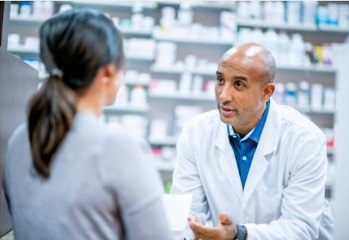
About the study
Please click here for information about the study.
Welcome to the Acne Care Online project page.
The Acne Care Online programme aims to create and test an online toolkit to support young people effectively treat their acne.
By doing this it aims to reduce the negative physical and mental impact of acne, and to reduce overuse of antibiotics for treating acne.
Watch our short video to find out more about Acne Care Online.

Please click here for information about the study.

Please click here to find out about how you can get involved.

Please click here for details of our Staff and Clinicians.
Contact: acnecare@soton.ac.uk
Twitter: @AcneCareOnline
Instagram: acne_care_online
This study is being conducted by the Primary Care Research Centre.
Acne is very common, and as well as causing physical symptoms (e.g. pain, scarring), it often makes people feel distressed and can lead to depression.
There is good evidence that certain acne creams, gels and facewashes (called ‘topical acne treatments’) work well for most acne, and don’t always need prescription. However, lots of young people don’t know about these treatments, or stop using them too soon because of side-effects or because they think they’re not working.
This often means that young people spend lots of money on cosmetic products that don’t really help, or end up being prescribed oral antibiotics where this might have been avoidable.
Acne Care Online will be an online toolkit that supports young people to:
The Acne Care Online programme of research will have several different stages:
1. Develop the online toolkit by working closely with a wide range of young people with acne, their families and health professionals to understand what will be most important and useful to include, and how to make it as interesting as possible.
2. Randomised trial to test whether using the toolkit can:
3. Explore how the toolkit works, by talking to those that have used it and analysing how they used it
4. Explore the costs to the NHS and for patients of using the toolkit and estimate its value for money
Please click here to view our Study Protocol.
To see our short video which explains what Acne Care Online is about click here.
Take part in an interview (30-60 minutes; £15 gift voucher).
If you are aged 16-25, have experience of acne and might be interested in taking part in an interview to give feedback on the Acne Care Online website we are developing, click the button below for more information.
If your child is aged 13-15, has experience of acne and might be interested in taking part in an interview to give their feedback on the Acne Care Online website we are developing, click the button below for more information.
Join our advisory group (multiple opportunities to join online discussion meetings, provide email/online feedback; gift voucher for each activity participated in).
If you or your child has experience of acne and you/they might be interested in joining a group that can help us to make Acne Care Online, click the button below for more information.
Julie Hooper, Trial Manager
Mary Steele, Research Fellow
Rebekah LeFeuvre, Programme Administrator
Rosie Essery, Academic Programme Manager
Stephanie Easton, Research Fellow
Co-investigators at other institutions:
Alison Layton (Consultant Dermatologist, Harrogate and District NHS Foundation Trust and Professor at Skin Research Centre, Hull York Medical School)
Andrew Thompson (Professor of Clinical Psychology, Cardiff & Vale University LHB)
Beth Stuart (Queen Mary University of London)
Kim Thomas (Professor of Applied Dermatology Research, University of Nottingham)
Mahendra Patel (Pharmacist, Honorary Professor, University of Bradford)
Matthew Ridd (GP, Professor of Primary Healthcare, University of Bristol)
Sinead Langan (Consultant Dermatologist and Professor of Clinical Epidemiology, London School of Hygiene)
Irene Soulsby (public contributor)
Kate Heneghan-Sykes (public contributor)
Sophie Dove (public contributor)
NIHR Programme Grants for Applied Research NIHR202852
01/03/2022 to 28/02/2027